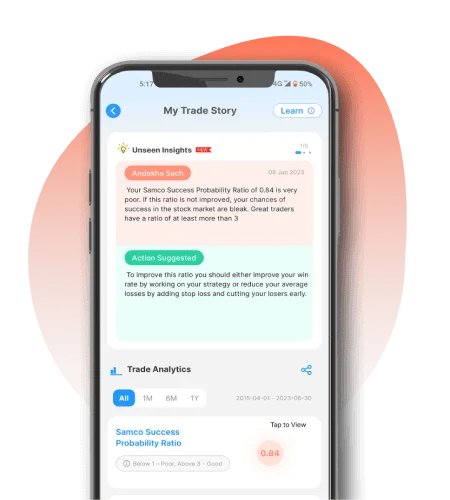| Issue Open | Jan, 30 2024 | Listing At | BSE, NSE |
| Issues Close | Feb, 1 2024 | Issue Size | ₹310.91 Cr |
| Issue Type | Book Built Issue IPO | Allotment Details | Feb, 2 2024 |
| Lot Size | 108 Shares | Refunds | Feb, 5 2024 |
| Face Value | ₹10 per share | Credit of Shares to Demat | Feb, 5 2024 |
| Price Band | ₹ 129 to ₹ 135 per share | Cut off time for UPI Mandate Confirmation | Feb, 1 2024 5:00 Pm |
In this article, we will discuss:
Introduction
BLS E-Services (BLS) is a digital service provider based in Delhi, offering a range of services such as business correspondence to major banks, assisted e-services, and grassroots-level e-governance services. The company facilitates the delivery of essential public utility services, including healthcare, financial, agricultural, educational, and banking services, catering to governments across urban, semi-urban, rural, and remote areas.
Specializing in both digital and physical products, BLS operates in Business-to-Business (B2B), Business-to-Consumer (B2C), and Government-to-Citizen (G2C) sectors. The focus is on areas with limited internet penetration, providing assistance to citizens in accessing basic technology-enabled services. The company's mission revolves around fostering economic independence and sustainable livelihoods for rural populations, women, and unbanked individuals by connecting them with financial services.
BLS E-Services delivers e-services through a network of partner retailers and stores known as BLS Touchpoints, offering services like ticketing, Point of Sale (PoS), and assisted e-commerce. These partnerships enable BLS to provide citizen-centric services, including over 200 government services in areas such as Housing & Urban Development and Health & Family Welfare. As of September 30, 2023, the company has a presence through 1,016 BLS stores and 98,034 BLS touchpoints.
Investment Rationale
Agile Merchant Catering with Asset-Light Model: BLS E-Services opts for an asset-light model, using its evolving technology platform to meet diverse merchant needs. This strategy ensures adaptability and innovation in a cost-effective manner.
Grassroots Financial Inclusion Drive: Focused on grassroots access, BLS E-Services empowers individuals with technology, fostering financial inclusion and trust. Its regional insights make it a preferred choice for implementing government schemes.
Diverse Revenue and Cost-Effective Acquisition: Operating in B2B, B2C, and G2C, BLS E-Services maximizes cross-selling and up-selling, minimizing customer acquisition costs. The model secures diverse revenue streams, ensuring financial sustainability.
Strategic Acquisitions for Growth: BLS E-Services excels in acquiring complementary businesses, strengthening capabilities. Key acquisitions include Zero Mass and Starfin, positioning the company for continued success in the dynamic market.
Industry Leadership with Cross-Selling Advantage: BLS E-Services, supported by parent company BLS International, leverages a vast network for cross-selling and up-selling. With an asset-light model and successful acquisitions, it navigates industry trends with agility.
Key Risks
RBI Policy Impact on Banking Partnerships: A significant B2C revenue source comes from banking partners, subject to RBI governance. Changes in RBI policies can adversely affect profitability, emphasizing the vulnerability of the company's financial outlook to regulatory shifts.
Contractual Uncertainties and Operational Risks: Contractual agreements with the promoter, including a non-compete clause, pose uncertainties in securing and renewing e-governance contracts. Operational risks, such as handling cash and potential fraud, further threaten the company's financial position and performance.
Geographic Concentration and External Dependencies: Operating e-Governance services in limited states exposes the company to adverse changes in regional conditions. Dependency on merchants for distribution network and reliance on information technology systems pose external risks, with any failures potentially harming operations and reputation. Additionally, contingent liabilities as of September 30, 2023, amounted to Rs 22.74 crore, introducing further financial uncertainties.
Key Financials
|
Particulars (in INR crores) |
As of September 30, 2023 |
Fiscal 2023 |
Fiscal 2022 |
Fiscal 2021 |
|
Revenue From operations |
156.17 |
243.06 |
96.69 |
64.48 |
|
Total revenue |
158.04 |
246.29 |
98.39 |
65.23 |
|
EBITDA |
22.49 |
36.28 |
8.62 |
5.47 |
|
EBITDA Margin (%) |
14.23% |
14.73% |
8.76% |
8.39% |
|
Profit after tax |
14.68 |
20.33 |
5.37 |
3.14 |
|
PAT Margin (%) |
9.40% |
8.36% |
5.56% |
4.88% |
|
Return on Equity (ROE) (%) |
12.92% |
33.33% |
43.48% |
38.91% |
|
Debt To Equity Ratio |
0.07 |
0.05 |
1.01 |
1.14 |
|
Interest Coverage Ratio |
61.43 |
8.53 |
7.62 |
3.65 |
|
Return on Capital Employed (ROCE) (%) |
16.69% |
30.62% |
28.39% |
29.68% |
Conclusion
BEL, a one-stop technology-enabled digital service provider, positioned to benefit from the government's "Digital India" initiative, shows promising prospects. With a demanding price-to-earnings ratio of 60.2x based on FY23 earnings, the company's impressive revenue growth of 50% in FY22 and a remarkable 151% in FY23 make these valuations seem reasonable. The comprehensive range of services offered under one roof aligns well with the evolving digital landscape, reinforcing the potential for sustained success in the market. Given the industry's positive outlook and the company's rapid expansion, the IPO receives a "Subscribe" rating.Top of Form




 Easy & quick
Easy & quick
Leave A Comment?